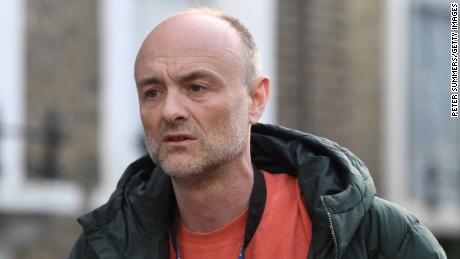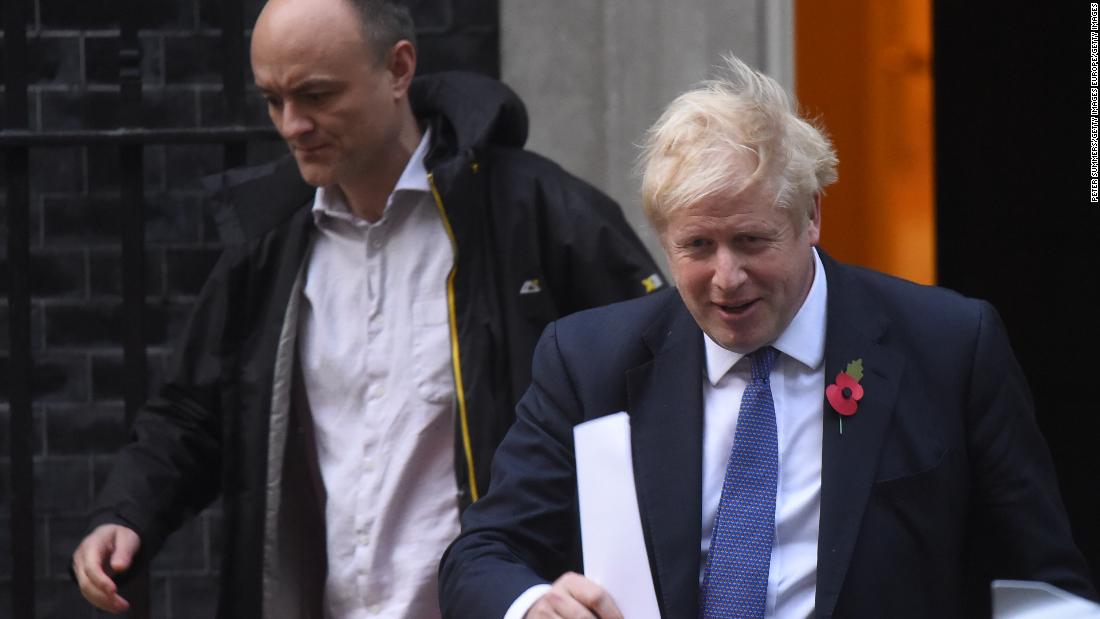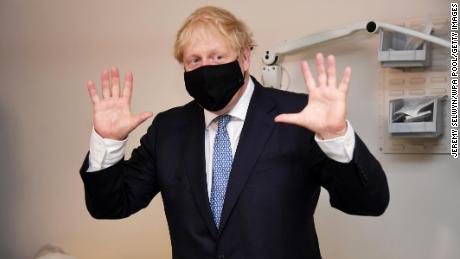How elites ruined the fight against coronavirus
So when the powerful or influential break the rules, it provokes fierce public anger and puts society’s inequalities on full view.
Ireland’s Minister for Agriculture Dara Calleary had already resigned over the so-called Golfgate scandal. The dinner was held a day after the government in which he served, facing a surge in cases, imposed restrictions — effective immediately — that limited indoor gatherings to six people, down from the 50 previously allowed.
And in the United Kingdom, the behavior of Prime Minister Boris Johnson’s chief adviser, Dominic Cummings, has come to exemplify a double standard in the public mind where ordinary people are expected to follow the rules while the elite can apparently break them with impunity.


Dominic Cummings refused to apologize for driving the length of England with his wife and child during lockdown, while his wife was sick with suspected coronavirus. Despite the furor, Cummings did not resign and was not sacked.
The decision by Johnson and his Cabinet to defend Cummings’ actions only made things worse, Michie said.
Other high-profile UK figures have also violated the rules. Scotland’s chief medical officer, Catherine Calderwood, resigned in April and was given a formal police warning after twice breaking lockdown restrictions to visit her second home.
Such actions by influential figures “exacerbate a sense of disenfranchisement because it gives a message that it’s one rule for us, as in the privileged, and one rule for them,” said Linda Bauld, a professor of public health at the University of Edinburgh.
“So it’s very, very damaging, it’s a very unfortunate thing.”
‘The most foolish thing’
Sports stars and members of the cultural elite have been caught flouting restrictions too.
England cricketer Jofra Archer was excluded from a Test match against the West Indies after he breached the team’s bio-secure protocols with an unauthorized visit to his home.
Such examples all have an impact, Michie said, particularly on young men, who are less likely to be sticking by the rules. Michie said she had been urging the UK government — so far to no avail — to make greater use of soccer players, singers and actors as role models in its information campaign, in order to reach different groups in society.
“We know that the more that people identify with the source, the more likely they are to adhere to it,” she said.
Poorest hit hardest by pandemic
The inequalities put on display when the rich and powerful flout the rules only add to public discontent.
Coronavirus has made Britain’s society even more unequal than it already was, said Michie, with restrictions on access to outside space and job losses hitting the poorest hardest. “To then compound it in terms of ‘one rule for us and one rule for them’ completely undermines the importance of collective responsibility,” she said.
“Particularly for those in crowded housing, it’s very upsetting … when they then see that people who have a lot in the society want more, while those who have very little are not given more.”
Professor Stephen Reicher, a behavioral scientist at the University of St. Andrews in Scotland, warned that too much media coverage of those breaking coronavirus rules in the UK — among the general population more than politicians — was a risk in itself.
“One of the most remarkable things about the pandemic is that the level of compliance has been very high,” said Reicher, who is also a member of the UK government’s scientific advisory panel on behavior and of an advisory group on Covid-19 in Scotland.
“If we put too much focus on violations, the danger is it’s not just a misrepresentation but can undermine compliance by creating false norms, by saying to us ‘if everyone else is going out, if everyone else if breaking the rules, why don’t we?'” he said.
Reicher also cautioned against a trend in blaming partying young people for rising coronavirus infection rates. Figures in fact showed their level of compliance had been high, despite lockdown often being more onerous for them.
Another danger lies in imposing strict lockdowns without providing sufficient material support for the poorest and most vulnerable members of society, he said.
“If you want people to comply, it’s a motivational thing, to create a sense of ‘we-ness,’ we are all in it together. You have to support people and help people to do what, by and large, they want to do.”
Why leadership counts
So what should leaders be doing? It’s simple really — leading by example.
“Effective leadership really depends on being seen as part of the group that the leader wants to lead. People need to have trust in that leadership. Anything that separates the leadership from the rest of group really undermines it,” said Bauld.
“If leaders do things that are not leading by example then we lose trust in them and we are less likely to follow the rules.”
Bauld highlighted politicians in Canada, Germany and most of Southeast Asia as having done well at abiding by their own guidelines.
This will be just as important in the months ahead, as students increasingly return to schools and winter threatens to usher in a second peak in coronavirus infections in the northern hemisphere.
All countries are relying on their populations adhering to the rules and changing their behaviors in order to protect the most vulnerable, said Bauld.
“If there’s any reason not to comply, or you are given an excuse not to comply, then that undermines the whole public health effort.”
CNN’s James Frater and Schams Elwazer contributed to this report.
![]()




